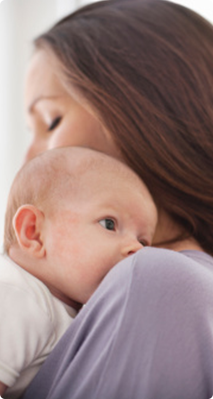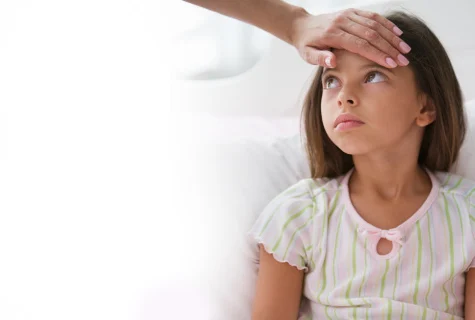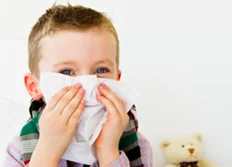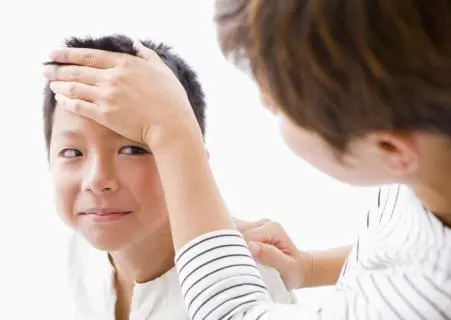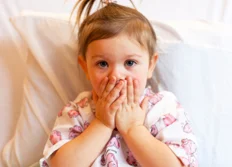Mumps is a viral infection, which is now much less common in Ireland. It can be quite unpleasant for your little one if they get it, so it’s well worth knowing how to treat it.
From bringing down their fever with paracetamol to simple tips to comfort your little one there’s plenty of ways to give them your best care so they soon feel better.
How do I know if my little one has mumps?
If your child has been vaccinated with the MMR (measles, mumps and rubella) vaccine then it's unlikely they will suffer from it - once both doses have been given the vaccine provides 95% protection against mumps.
If you do suspect a case of mumps though, look for these common symptoms:
the glands at the side of their jaw are swollen which can cause difficulty swallowing
aches and pains such as headaches, joint pain or slight abdominal pain
Feeling sick, a loss of appetite or dry mouth
your little one has a fever of 38°C or above
generally feeling tired and run down.
It's important to contact your GP if you suspect that your child has mumps, so they can confirm (or rule out) that’s the case.
How can I help them feel better?
Although there’s no specific treatment for mumps, there are lots of things you can do to help your little one feel better.
The most important thing is to make sure they get plenty of good rest.
Do they have a fever?
Mumps can cause children to feel feverish, so you may want to keep an eye on their temperature. To help you keep note of how they’re doing, we’ve prepared a fever diary.
Download our fever diary to keep track of their temperature (PDF)
Are they suffering from aches and pains, too?
Aches and pains can make it hard for your little one to settle and get the rest they need. Here are some options that can help:
Try a paracetamol-based medicine that gives them pain relief, like CALPOL® Infant Suspension. It’s suitable for babies over 2 months, weighing over 4kg and not premature.
Are they 6 years or older? You could try a paracetamol-based medicine for older children, like CALPOL® SIXPLUS™ Suspension.
Handy tip
Give your child their favourite soft food that doesn’t need a lot of chewing, which they’ll find easier to eat, like yogurt or pureed vegetables.
Some more simple tips
Try gently pressing a warm or cool compress against their swollen glands to help reduce any pain.
Make sure they drink lots of fluids.
A warm drink before you settle them to sleep can be soothing.
How long will it last?
The infection should pass within one or two weeks.
How long will my little one remain infectious?
Mumps is infectious and your little one is most contagious a few days before symptoms develop and for a few days after.
It’s best to keep your child away from other children for at least five days after their symptoms first started developing.
You can help stop mumps spreading to others by being careful about washing your hands and using tissues when your little one sneezes.
When to call the doctor
Mumps itself is not usually serious, but it can have similar symptoms to more serious types of infection, like glandular fever and tonsillitis. So if you think your child has mumps it's best to see your GP to confirm.
Measles
Measles is increasingly rare in children nowadays, but you should know the symptoms – and how to treat them – just in case.
Contact the HSE
For health advice and reassurance.
1850 24 1850
